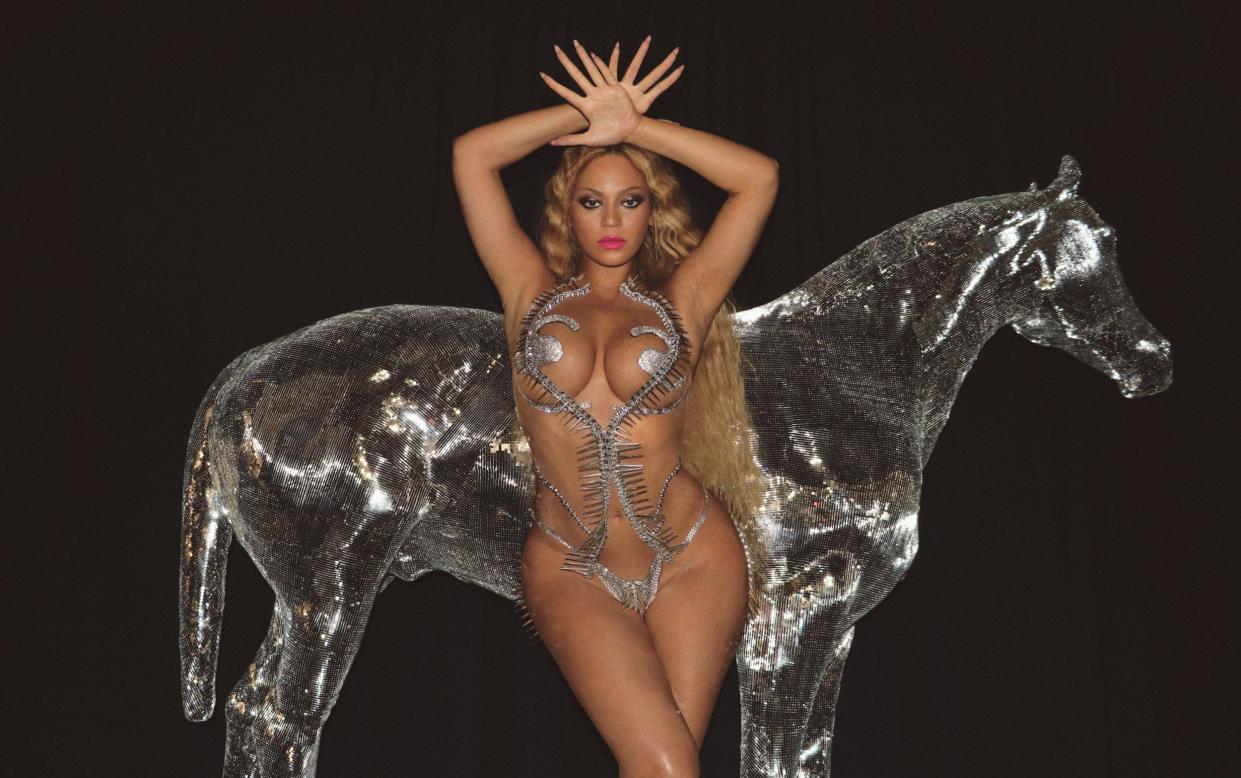Beyoncé channels Top of the Pops, King Princess is full of regrets – the week’s best albums

Beyoncé, Renaissance (Colombia Records) ★★★★☆
James Hall’s full review of Renaissance ran in The Telegraph on July 29
… Over 16 tracks, Renaissance is essentially a tribute to two forms of music: late-1980s and early-1990s house, and disco. It is peppered with sounds that anyone watching reruns of Top of the Pops from that era on BBC Four will be instantly familiar with: tinny synths, fat basslines and foreboding voiceover snippets. But the package is infused with hip hop and Beyoncé’s powerhouse vocals, either rapped or sung.
Inevitably, the album boasts the involvement of a list of producers, collaborators and sampled artists as long as your arm – from Grace Jones, Tems and Drake to Nile Rodgers, Giorgio Moroder and Beyoncé’s husband Jay-Z. The whole thing is big, shiny and unwieldy, which perhaps explain her comments about imperfection. It is also often brilliant, in the way that going clubbing and having a massive night can be brilliant: it’s energising, thrilling, empowering… and exhausting. James Hall

King Princess: Hold On Baby (Zelig) ★★★★★
King Princess is the alter ego of Mikaela Straus, a multi-instrumentalist singer-songwriter from Brooklyn. Hold On Baby is her second album: a smart, intense, provocative, seductive slice of future pop, justifying the industry hype that has been building around her.
Straus was first offered a record deal at 11 years old, which suggests that her talent was never in doubt. Her father was a recording engineer, and she spent her formative years messing about in his studio, singing backing vocals for bands. She dropped out of music school in LA after being discovered by super-producer and hitmaker Mark Ronson, becoming the first signing to his Zelig label.
Her debut single 1950 was a viral hit, championed by Harry Styles and at least partially propelled by Straus’s gender-blurring image (a girl dressed like a boy dressed like a girl). In a pop world increasingly obsessed with identity politics, Straus was right on trend, describing herself as queer and non-binary (although mercifully unfussed by pronouns). Her 2019 debut album, Cheap Queen, offered up frank and sensuous songcraft allied to sleek, understated contemporary pop but didn’t exactly set the world on fire. Hold On Baby is in another league altogether, for which she has really put her inner self on the line.
“It sounds like a song – but it hits like a Bible,” the 23-year-old declares in a breathily desperate tone between a whisper and a scream. It is an arresting phrase that sounds like a mission statement. It comes from Dotted Line, a sticky, woozy, punch-drunk synth pop banger about being an undervalued woman in the music business. “I’ve got a lot of regret / Dotted lines that I signed at 17,” Straus sings, confessing “I’m so much younger than I pretend / I got a lot in my head / But they don’t care cause it’s better when I don’t speak.” By the chorus, she is on the bathroom floor getting high and painting “a pretty face over tears I’ve cried.”
Yet there’s something about the way Straus layers her vocals, singing in different tones from tremblingly soft to raw and explosive, that turns it into a conversation in her own head, as much pep talk as a complaint about the misogynist state of the music business. “It sounds like I’m breaking but I’m just trying to make it out,” she seethes with furious energy, as if determined to get on with the real work of creating songs that have the force of religious conviction.
The whole album maintains this level of emotional intensity, without straying into stridency or neglecting the business of crafting flowing melodies and earworm hooks. From tense scene-setting opening track I Hate Myself, I Want to Party to dramatic closing anthem Let Us Die (a metaphorical lover’s suicide pact that drives over the edge like a turbo-charged new wave pop-rock anthem) Hold On Baby grapples with the complications of being young and in love in a confusing world. Straus hits a sweet spot between commercial electropop, idiosyncratic indie rock and intense confessional singer-songwriting.
There is a lot of fine US talent on board, including Aaron Dressner of alt-rock favourites The National (fresh from collaborations with Taylor Swift), Ethan Gruska (producer of Gen Z’s favourite troubadour Phoebe Bridgers) and Ronson himself. But Strauss has co-written and co-produced, stamping it with the force of her personality. To listen to Hold On Baby is to feel like you are really inside someone else’s world, their voice urgently delivering their most intimate feelings in your ear, transmuting them into pop gold. Neil McCormick

Maggie Rogers: Surrender (Universal) ★★★☆☆
Surrender, Maggie Rogers’ second album, shares a title with her recent Harvard postgraduate thesis on cultural consciousness and pop culture ethics. It’s not the first time the Grammy-nominated American artist has woven academia into pop music. She completed her undergraduate degree in music production at NYU’s esteemed Clive Davis Institute, where her song Alaska, written for a class assignment, won her viral praise from Pharrell Williams and jump-started her career.
For all her cerebral pursuits and professional sparkle, Rogers’ music remains straightforwardly physical, from the earthy electronica of her 2019 debut album Heard It In A Past Life, which fused folk with dance music, to follow-up Surrender: a ravenous, hollering collection of songs.
Pummelled into being by titanic drums, Surrender is otherwise shaped by odd electronic loops and Rogers’ distinctive demerara sugar vocals. Her sweet granularity recalls singers such as Dido, Alanis Morissette, and Dolores O’Riordan of the Cranberries, and the album owes plenty to that early-2000s alt-rock sound. Opening tracks Overdrive, That’s Where I Am, and Anywhere With You hurtle along pleasingly, with huge highway emotions that occasionally swerve towards the middle of the road in the style of U2, Stereophonics, or The Cardigans. Elsewhere, it’s tough to resist the charms of synth-rock juggernaut Shatter.
But by the eighth track, guitar ballad Begging For Rain, the album has drowned itself out. The following songs, I’ve Got A Friend – a plucked country ode to sisterhood with raw production that sticks out like a sore thumb – and the unremarkable Honey offer little relief.
Rogers’ voice, which moves from song to song like an exhausting continuous line drawing, never lifting from the page, starts to fray with intensity. The album feels longer than its 12 tracks, and frequently verges on overblown. But perhaps that’s the point. Surrender leans so hungrily into its sonic vision of maximal catharsis that the album soon embodies its title – and propels you into doing the same. Kate French-Morris

 Yahoo News
Yahoo News 